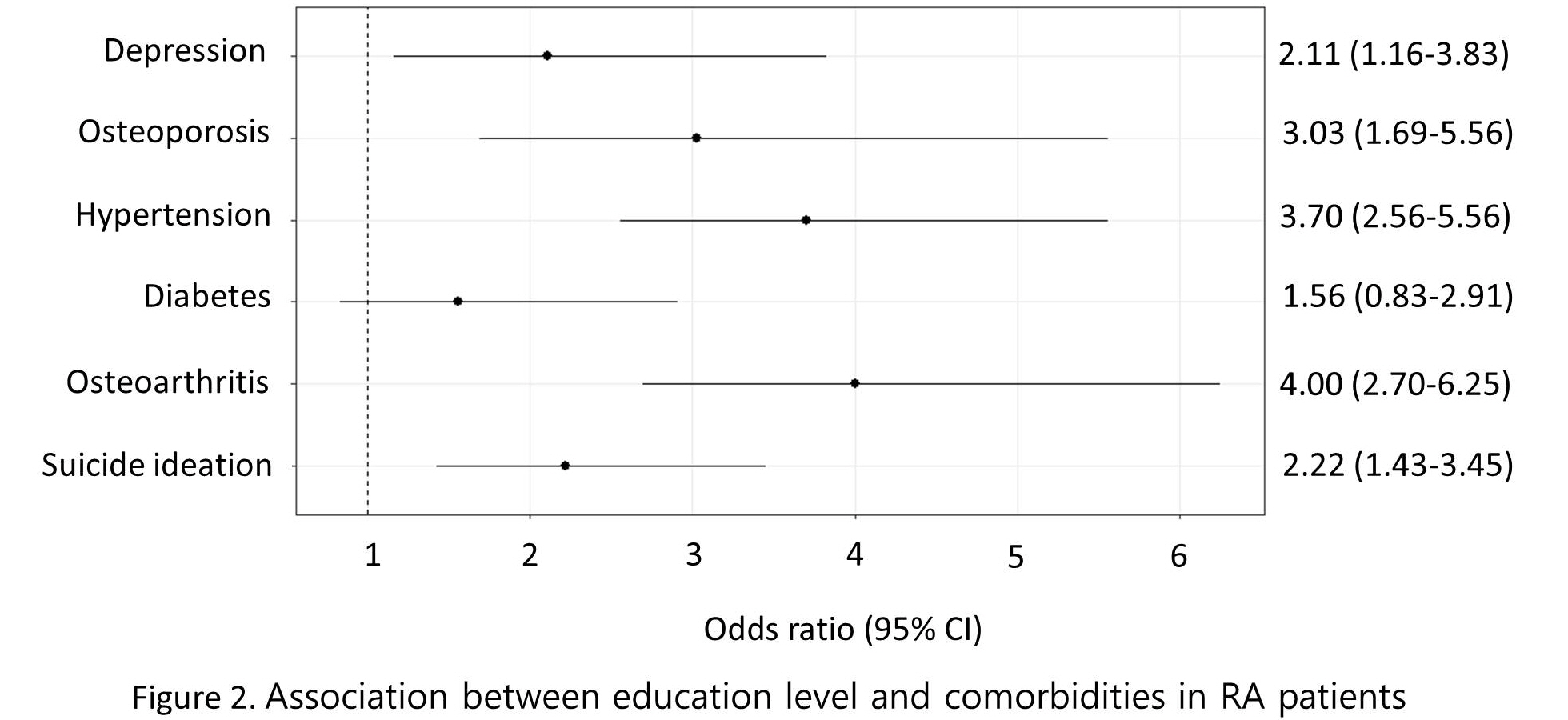Session Information
Session Type: ACR Poster Session A
Session Time: 9:00AM-11:00AM
Background/Purpose: Increased prevalence of comorbidities in patients with rheumatoid arthritis (RA) compared to general population has been noted in several previous study. This study aims to systematically examine the effect of SES on the comorbidity distribution among Korean patients with RA
Methods: A total of 1,088 (weighted n = 612,303) RA patients aged ¡Ã 19 years were selected from 2007-2015 Korea National Health and Nutrition Examination Survey which is a nation-wide survey annually conducted using questionnaires and medical examinations. Three components of SES including household equivalence income (below versus above median level), education (below versus above high school education), residence (rural versus urban) were stratified into low and high. The prevalence of the following comorbidities was compared between low and high group in terms of each component: stroke, myocardial infarction (MI), angina, hypertension, dyslipidemia (hypercholesterolemia and/or hypertriglyceridemia), diabetes, obesity, thyroid disease, osteoporosis, osteoarthritis, stress, depression, and suicide ideation.
Results: When stratified into low and high group of each SES component, patients of low income or low education were older and more comorbid than those of high income or high education, showing higher prevalence of stroke, MI, angina, hypertension, dyslipidemia, diabetes, osteoporosis, depression, and suicide ideation (all p-value < 0.05). To adjust confounding by age, we further stratified RA patients according to the median age value of 63 years. In the aged under the 63 years, low income was associated with depression, hypertension, diabetes, osteoarthritis, suicide ideation, obesity and hypertriglyceridemia (Figure 1) while the prevalence of these comorbidities was comparable in the aged above the 63 years. Low education showed a similar trend in the aged under the 63 years (Figure 2). In the aged above the 63 years, low education was associated only with suicide ideation (p < 0.05).
Conclusion: Among Korean RA patients aged under the 63 years, higher prevalence of comorbidities was found in association with low income and/or low education. Recognizing the different prevalence of comorbidities by SES would be essential to provide optimal patient care and to improve the health outcome in patients with RA.
To cite this abstract in AMA style:
Shin S, Shin A, Kim JH, Ha YJ, Lee YJ, Song YW, Kang EH. Association between Comorbidities and Socioeconomic Status Among Patients with Rheumatoid Arthritis in Korea [abstract]. Arthritis Rheumatol. 2018; 70 (suppl 9). https://acrabstracts.org/abstract/association-between-comorbidities-and-socioeconomic-status-among-patients-with-rheumatoid-arthritis-in-korea/. Accessed .« Back to 2018 ACR/ARHP Annual Meeting
ACR Meeting Abstracts - https://acrabstracts.org/abstract/association-between-comorbidities-and-socioeconomic-status-among-patients-with-rheumatoid-arthritis-in-korea/


